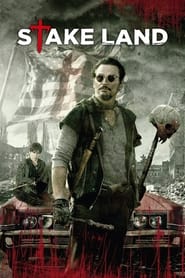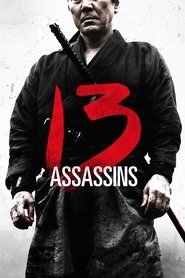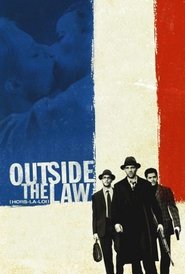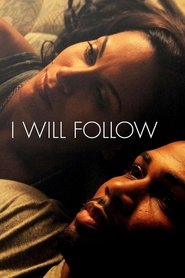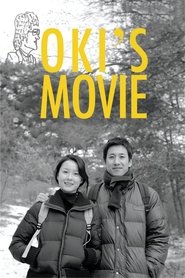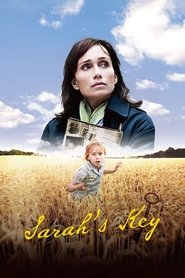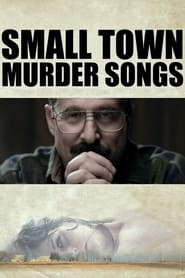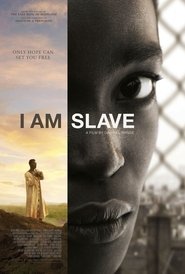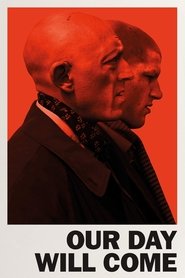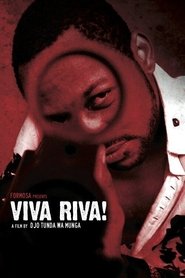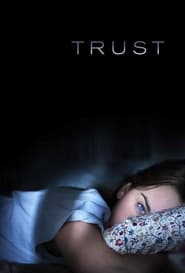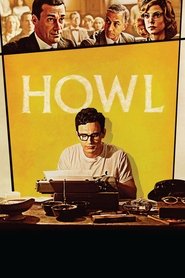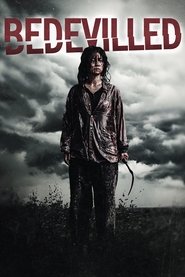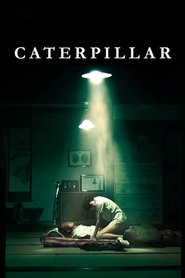New Drama Movies on Kanopy - Page 190
-
Stake Land
2010
Stake Land
2010
star 6.2Martin was a normal teenage boy before the country collapsed in an empty pit of economic and political disaster. A vampire epidemic has swept across what is left of the nation's abandoned towns and cities, and it's up to Mister, a death dealing, rogue vampire hunter, to get Martin safely north to Canada, the continent's New Eden. -
Special Treatment
2010
Special Treatment
2010
star 4.2Drawing some intriguing parallels between the work of the prostitute and that of the psychiatrist-both have clients, both charge for sessions, both take on roles that serve the needs, psychological or otherwise, of those they serve, Jeanne Labrune's drama stars Isabelle Huppert and Bouli Lanners as, respectively, Alice, a disaffected call girl and Xavier, a shrink with a crumbling domestic situation. -
13 Assassins
2010
13 Assassins
2010
star 7.3A bravado period action film set at the end of Japan's feudal era in which a group of unemployed samurai are enlisted to bring down a sadistic lord and prevent him from ascending to the throne and plunging the country into a war-torn future. -
Outside the Law
2010
Outside the Law
2010
star 6.6After losing their family home in Algeria in the 1920s, three brothers and their mother are scattered across the globe. Messaoud joins the French army fighting in Indochina; Abdelkader becomes a leader of the Algerian independence movement in France and Saïd moves to Paris to make his fortune in the shady clubs and boxing halls of Pigalle. -
I Will Follow
2010
I Will Follow
2010
star 5.1Chronicles a day in the life of a grieving woman, and the twelve visitors who help her move forward. -
Tuesday, After Christmas
2010
star 6.3Paul Hanganu loves two women. Adriana his wife and the mother of their daughter, the woman with whom he's shared the thrills of the past ten years, and Raluca the woman who has made him redefine himself. He has to leave one of them before Christmas. -
Jack Goes Boating
2010
Jack Goes Boating
2010
star 6A limo driver's blind date sparks a tale of love, betrayal, friendship and grace—centered around two working-class New York City couples. -
Oki's Movie
2010
Oki's Movie
2010
star 6.7Oki, a film student, gets involved in two relationships as she navigates the advances of a fellow student and grapples with her feelings for her much older professor. -
Sarah's Key
2010
Sarah's Key
2010
star 7.3On the night of 16 July 1942, ten year old Sarah and her parents are being arrested and transported to the Velodrome d'Hiver in Paris where thousands of other jews are being sent to get deported. Sarah however managed to lock her little brother in a closet just before the police entered their apartment. Sixty years later, Julia Jarmond, an American journalist in Paris, gets the assignment to write an article about this raid, a black page in the history of France. She starts digging archives and through Sarah's file discovers a well kept secret about her own in-laws. -
Small Town Murder Songs
2010
star 5.3A modern, gothic tale of crime and redemption about an aging police officer from a small Ontario Mennonite town who hides a violent past until a local murder upsets the calm of his newly reformed life. -
I Am Slave
2010
I Am Slave
2010
star 6.1Based on the real-life experiences of Mende Nazer, the story unfolds as twelve-year-old Malia, daughter of champion wrestler Bah, is abducted from her Sudanese village in the Nubar Mountains by pro-government Arab militia and sold into slavery to a woman in Khartoum, who beats her for touching her daughter. After six years she is sent to London, where her name is changed, but her miserable life of servitude continues. Her passport is taken and she is told that her father will die if she goes to the authorities. Fortunately she meets a sympathetic person who seems to offer her the hope of escape and reunion with Bah ,back in Sudan. For all the film's optimism an end title states that there are around 5,000 'slave' workers currently in Britain. -
The Whistleblower
2010
The Whistleblower
2010
star 6.7Nebraska cop Kathryn Bolkovac discovers a deadly sex trafficking ring while serving as a U.N. peacekeeper in post-war Bosnia. Risking her own life to save the lives of others, she uncovers an international conspiracy that is determined to stop her, no matter the cost. -
Brighton Rock
2010
Brighton Rock
2010
star 5.7Charts the headlong fall of Pinkie, a razor-wielding disadvantaged teenager with a religious death wish. -
Our Day Will Come
2010
Our Day Will Come
2010
star 6.2Redheaded teen Remy is bullied by his soccer teammates and drawn into fights with his younger sister and mother in their cramped apartment. After a flare-up of domestic violence, he flees home and is tracked down by a bitter guidance counselor, Patrick, also a redhead. Patrick looks upon Remy’s sullen insolence with both sympathy and disdain and decides to toughen him up... -
Viva Riva!
2010
Viva Riva!
2010
star 5.2Riva is a small time operator who has just returned to his hometown of Kinshasa, Congo after a decade away with a major score: a fortune in hijacked gasoline. Wads of cash in hand and out for a good time, Riva is soon entranced by beautiful night club denizen Nora, the kept woman of a local gangster. -
Trust
2010
Trust
2010
star 6.5A suburban family is torn apart when fourteen-year-old Annie meets her first boyfriend online. After months of communicating via online chat and phone, Annie discovers her friend is not who he originally claimed to be. Shocked into disbelief, her parents are shattered by their daughter's actions and struggle to support her as she comes to terms with what has happened to her once innocent life. -
I'm Still Here
2010
I'm Still Here
2010
star 6I'm Still Here is a portrayal of a tumultuous year in the life of actor Joaquin Phoenix. With remarkable access, the film follows the Oscar-nominee as he announces his retirement from a successful film career in the fall of 2008 and sets off to reinvent himself as a hip-hop musician. The film is a portrait of an artist at a crossroads and explores notions of courage and creative reinvention, as well as the ramifications of a life spent in the public eye. -
Howl
2010
Howl
2010
star 6.5It's San Francisco in 1957, and an American masterpiece is put on trial. Howl, the film, recounts this dark moment using three interwoven threads: the tumultuous life events that led a young Allen Ginsberg to find his true voice as an artist, society's reaction (the obscenity trial), and mind-expanding animation that echoes the startling originality of the poem itself. All three coalesce in a genre-bending hybrid that brilliantly captures a pivotal moment-the birth of a counterculture. -
Bedevilled
2010
Bedevilled
2010
star 7.2A disillusioned Seoul woman visits a remote island to reconnect with a childhood friend, only to find her trapped in an oppressive cycle of physical, mental, and sexual abuse. As tensions escalate, the situation spirals into a harrowing tale of survival and retribution. -
Caterpillar
2010
Caterpillar
2010
star 6.3The story of a village woman given the grueling task of looking after (and fulfilling the sexual needs of) her quadruple amputee husband, a Japanese soldier in the Second Sino-Japanese War who has been decreed a "War God" by the Emperor.
 Netflix
Netflix
 Amazon Prime Video
Amazon Prime Video
 Apple iTunes
Apple iTunes
 Apple TV Plus
Apple TV Plus
 Disney Plus
Disney Plus
 Google Play Movies
Google Play Movies
 Paramount Plus
Paramount Plus
 Hulu
Hulu
 HBO Max
HBO Max
 YouTube
YouTube
 fuboTV
fuboTV
 Peacock
Peacock
 Peacock Premium
Peacock Premium
 Amazon Video
Amazon Video
 The Roku Channel
The Roku Channel
 AMC+
AMC+
 Kocowa
Kocowa
 Hoopla
Hoopla
 The CW
The CW
 Vudu
Vudu
 Starz
Starz
 Showtime
Showtime
 PBS
PBS
 Pantaflix
Pantaflix
 FXNow
FXNow
 Tubi TV
Tubi TV
 Kanopy
Kanopy
 Comedy Central
Comedy Central
 Crunchyroll
Crunchyroll
 Microsoft Store
Microsoft Store
 Redbox
Redbox
 Sun Nxt
Sun Nxt
 ABC
ABC
 DIRECTV
DIRECTV
 Crackle
Crackle
 Fandor
Fandor
 Plex
Plex
